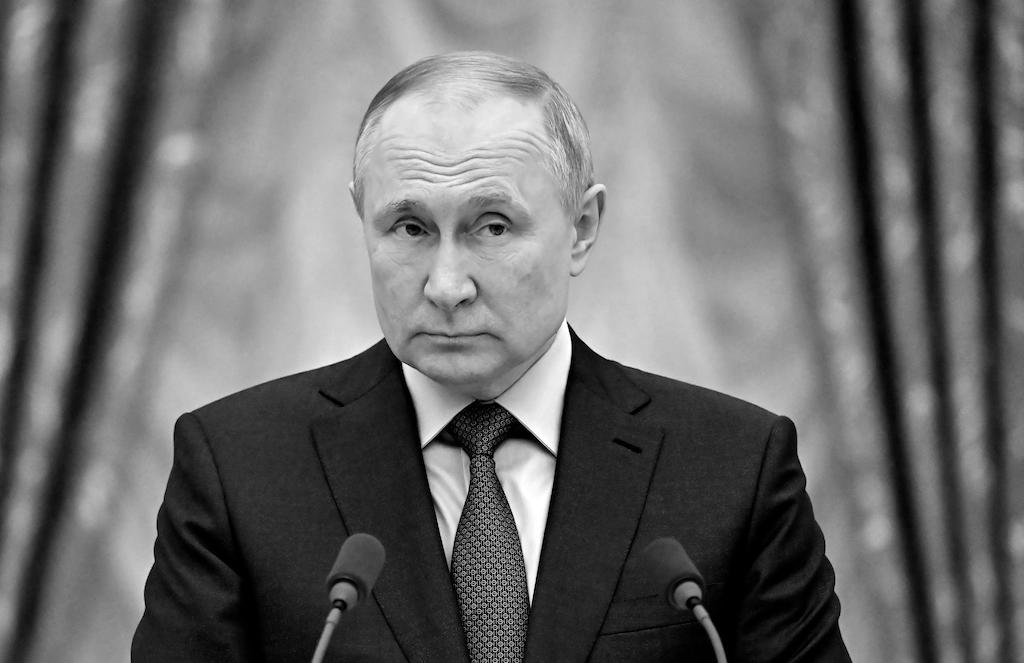As Russia’s invasion of Ukraine escalates, the Russian president’s decision has not gone down well on any front, including with allies such as China, and has, in fact, already had unintended consequences for European Union unity.

With his chaotic invasion of Ukraine, Putin has achieved the seemingly impossible, bringing together a fractious and polarised EU under a single banner. While Putin looks increasingly isolated on the global stage as the brutality of the war escalates and the humanitarian crisis deepens, on the European side, countries are rallying together in condemnation of Putin’s actions, implementing wide-ranging sanctions en bloc, while also approving €450 million in funds for lethal aid to Kyiv.
At present, one million refugees have fled across Ukraine’s borders as Russia continues its relentless bombardment of key cities. Researchers are gathering evidence of alleged war crimes following attacks on civilian areas including the possible use of cluster munitions and “vacuum bombs”. While ceasefire attempts to enable civilians to escape in Mariupol, a strategic port in the southeast, and the eastern city of Volnovakha, have so far been unsuccessful with Ukrainian forces accusing Russia of breaking the agreement.
Europe’s response is ironic given that Putin has always looked to cement discord and exploit EU vulnerabilities through a number of measures, including economic interdependence (Germany’s dependence on Russian gas), the financing of Eurosceptic parties (France’s National Front party and Germany’s AfD); alongside cyber warfare in Estonia in 2007 and as part of Russia’s “hybrid-aggression” against Georgia in 2008.
Many of these campaigns were successful in further fragmenting and weakening an EU fraught with geopolitical disagreements, an ongoing migrant crisis, and the rise of populist movements. across Europe. The Covid-19 pandemic exacerbated existing divisions as countries pursued unilateral national policies.
European states were also known for their vastly different positions on Russia and how to deal with Putin. Austria famously refused to expel any Russian diplomats, citing its “neutrality” after the 2018 nerve agent attack on a former spy in the UK. For Baltic countries, geographic and historical ties dictate a more cautious approach. Some, such as the UK, have been typically more robust in their approach, with London adopting a “‘maximalist’” approach to sanctions on Russian individuals.
What have EU countries agreed?
Within days, Russia’s invasion had triggered seismic policy shifts across Europe. In a historic reversal of its traditional diplomatic approach, Germany committed to raising military spending to more than 2% of its GDP. German Chancellor Olaf Scholtz also said that the country would supply Ukraine with lethal weapons. Germany’s volt face follows a long-held policy of prohibiting weapons it sells to partners from being deployed in conflict zones. Elsewhere, strong movements within non-EU member states are pushing for further rapprochement with Europe, with Moldova and Georgia following Ukraine in applying for fast-track EU membership.
The EU’s swift and unified response has surprised many observers. “There were a lot of discussions that something big was coming; however, there were no leaks which is unusual. …,” says Dr. Arkady Moshes, program director for the EU Eastern Neighbourhood and Russia research program.
“What was somewhat surprising was how quickly countries who usually block pressure on Russia gave up. There is a simple explanation for this. Politicians these days are not really leading; they are led by public opinion. When they realised the strength of public opinion and how much support there was for Ukraine, they really had no choice but to do something.”
Moving forward
Elsewhere, the invasion has given NATO a renewed purpose. But with an awareness that economic might alone will not guarantee security, particularly as the United States remains focused on the threat from China, European states within NATO may look to increase the alliance’s capabilities, including the creation of a more autonomous defence capacity. An increase in European defence capabilities is something French President Emmanuel Macron has long pushed for. As the new European Union president, he might see this as the perfect opportunity to move forward on such an agenda.
“Some in the EU have said that rather than a new EU force, we should see NATO become more flexible, such as a European flank of NATO or a European NATO. This could allow the US to distance at its own pace as it considers China, give pro-Atlantic states UK, Denmark, Poland, Estonia, Latvia and Lithuania some degree of American guarantees (even if descending in relevance) and finally those like France, Belgium and Germany who see a more European core to defence being necessary,” says David Galbreath, professor of International Security and dean of the Faculty of Humanities and Social Sciences at the University of Bath.
“To be honest, this was happening to some degree anyway but had started to come apart as the culture wars were dominating politics prior to the crisis. I suspect that if the [U.S. President Joseph R. Biden Jr.’s administration not been so quick to be hawkish and supporting of Kyiv, we could have seen a faster route to a European defence pact. But we may well get one anyway. China still has a hand to play.”
An increased military threat across Europe has forced non-member states to rethink their position. In Finland and Sweden, public opinion polls show growing support for the countries joining NATO. Representatives from both nations joined NATO Foreign Ministers in Brussels in a meeting last week to address the escalating crisis in Ukraine. There has been no talk of a policy change as of yet. But that hasn’t stopped Putin from warning of “serious military and political repercussions” if Sweden and Finland join NATO.
While things are unlikely to change overnight, the signs of change across Europe are unmistakable. Only time will tell if a more powerful Europe on the global stage is part of Putin’s Ukraine legacy.
Hannah Wallace is a London-based writer and researcher on armed violence and foreign affairs. She has written for, among others, The New Arab, The Jerusalem Post and Asharq Al-Awsat.







